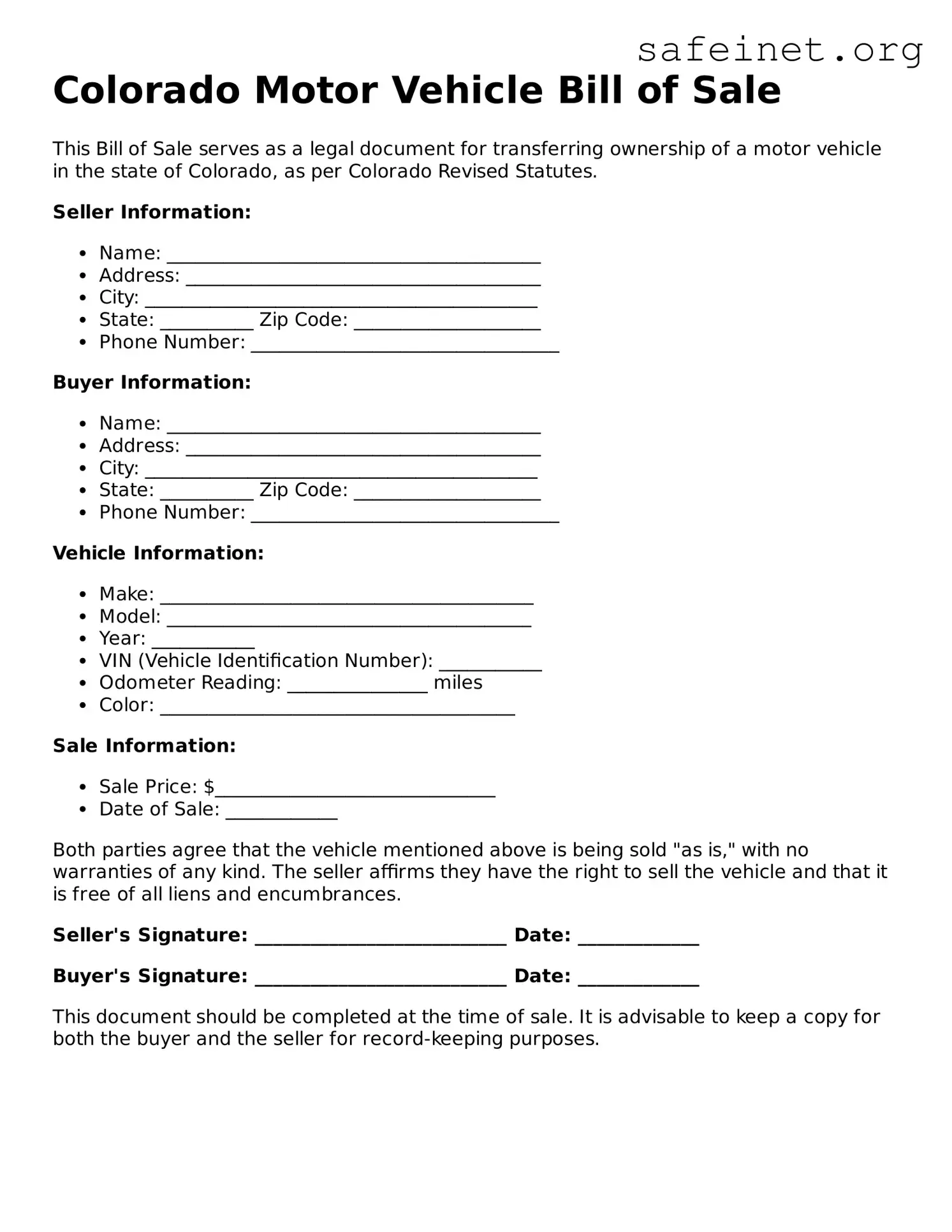What is a Colorado Motor Vehicle Bill of Sale form?
The Colorado Motor Vehicle Bill of Sale is a legal document used to record the sale of a motor vehicle in Colorado. It provides essential details about the transaction, including information about the buyer, seller, vehicle, and the sale price. This form is crucial for both parties to establish proof of ownership transfer and to document the terms of the sale.
Who needs to complete the Bill of Sale?
Both the seller and buyer of the vehicle need to complete the Bill of Sale. The seller must provide accurate vehicle details and confirm ownership, while the buyer should ensure all information is correct for their purchase records. This form protects both parties in the transaction.
What information is required on the Bill of Sale?
The Colorado Motor Vehicle Bill of Sale requires several details. Key information includes the names and addresses of both the buyer and seller, the vehicle’s make, model, year, identification number (VIN), odometer reading at the time of sale, sale price, and the date of the transaction. Both parties should ensure all this information is complete and accurate.
Is the Bill of Sale necessary for vehicle registration?
Yes, the Bill of Sale is often required for vehicle registration in Colorado. When the new owner goes to register the vehicle, they will need to provide the Bill of Sale along with other documents. It serves as proof that the purchase has taken place, helping to complete the registration process.
Do I need to get the Bill of Sale notarized?
No, it is not necessary for the Colorado Motor Vehicle Bill of Sale to be notarized. However, both parties should sign the form to acknowledge the transaction. While notarization is not required, some buyers and sellers may choose this option for added record security.
Can I create my own Bill of Sale?
While you may create your own Bill of Sale, it is advisable to use the official form provided by the Colorado Department of Revenue. Using the standard form ensures that all necessary information is included and reduces the risk of errors. Custom forms may lack essential elements required for the transaction.
What should I do with the Bill of Sale after the transaction?
After completing the transaction, both the buyer and seller should keep a copy of the Bill of Sale for their records. It serves as a legal document verifying the sale and details the agreement made between both parties. Maintaining these records is essential for future reference or in case any disputes arise.
How does the Bill of Sale protect both parties?
The Bill of Sale protects both the seller and the buyer by providing a written record of the transaction. It documents the terms agreed upon and proves ownership transfer. In potential disputes, having this form can help clarify the terms of the agreement and the responsibilities of both parties.
Where can I obtain a Colorado Motor Vehicle Bill of Sale form?
You can obtain the Colorado Motor Vehicle Bill of Sale form from the Colorado Department of Revenue's website. It may also be available at local motor vehicle offices. Additionally, various online resources provide printable versions of the form that comply with state requirements.
